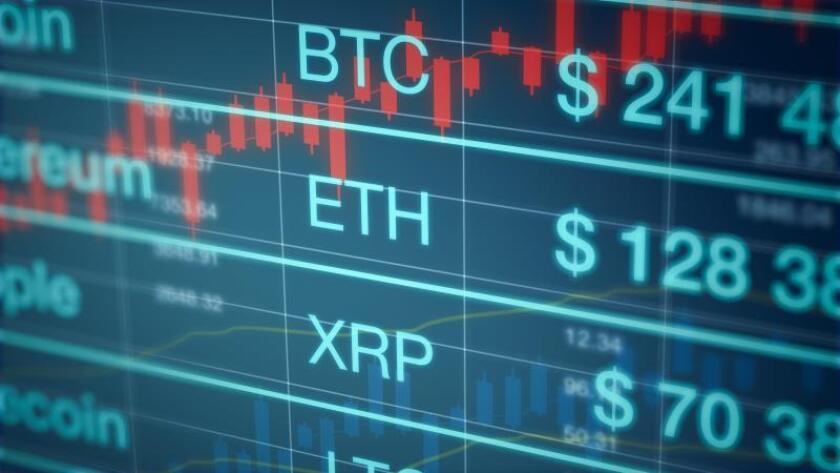Virtual currencies or cryptocurrencies (for the purpose of this article the two terms are used interchangeably) are the next big thing in Indonesia. And while most Indonesians are still contemplating what a virtual currency actually is and does, virtual currencies such as Bitcoin, Ripple and the like are finding an increasingly large number of eager Indonesian buyers.
Bank Indonesia (BI – Indonesia's central bank), the Ministry of Finance (MOF), the Financial Services Authority (Otoritas Jasa Keuangan or OJK), the Indonesian Financial Transaction Reports and Analysis Center (Pusat Pelaporan dan Analisis Transaksi Keuangan or PPATK) and the Commodity Futures Trading Regulatory Agency (Bappebti), as the relevant authorities in Indonesia, are acutely aware of this situation and of the fact that there is currently no specific regulation in Indonesia that deals with cryptocurrencies. Led by BI, they are scrambling to fill this void and are currently reviewing various aspects of virtual currency and its regulation.
Although there was at publication no specific regulation in Indonesia dealing with virtual currencies, a number of existing regulations can be viewed as relevant to and briefly touch on the subject of virtual currencies. Law 7 of 2011 regarding Currency (the Currency Law) provides that the Indonesian rupiah is the only lawful currency in Indonesia and that any transaction in Indonesia for the purpose of payment, the settlement of other liabilities that must be settled with money, and/or other financial transactions must use rupiah.
How Indonesia defines a virtual currency
A definition of virtual currency can be found in BI Regulation 18/40/PBI/2016 regarding Provision of Payment Transaction Processing, dated November 9 2016 (BI Reg 18/40). Under BI Reg 18/40, a virtual currency is defined as digital money issued by a party other than the monetary authority obtained by way of mining, purchase, or transfer of reward, and includes, among others, Bitcoin, BlackCoin, Dash, Dogecoin, Litecoin, Nxt, Peercoin, Primecoin, Ripple and Ven. Not included in this definition of virtual currency is electronic money. A similar definition of virtual currency is available in BI Regulation 19/12/PBI/2017 regarding the Provision of Financial Technology, dated November 30 2017 (BI Reg 19/2017), and the elucidation of BI Regulation 20/6/PBI/2018 regarding Electronic Money, dated May 4 2018 (BI Reg 20/2018).
Virtual prohibition and the sanctions
BI Reg 18/40 provides that payment system service providers (principals, switching providers, issuers, acquirers, payment gateway providers, clearing providers, final settlement providers, fund transfer providers and electronic wallet providers) are prohibited from conducting payment transaction processing using virtual currency. And BI Reg 19/2017 prohibits fintech providers from conducting payment system activities using virtual currency, based on the view that a virtual currency is not a lawful payment instrument in Indonesia. BI Reg 20/2018 prohibits e-money providers (issuers, acquirers, principals, switching providers, clearing providers and final settlement providers) to accept, use, link and/or conduct the processing of an e-money payment transaction using virtual currency.
|
|
The use of virtual currencies for payment purposes is prohibited under Indonesian laws |
|
|
Under BI Reg 18/40, payment system service providers that violate the prohibition on the use of virtual currency in payment transaction processing are subject to administrative sanctions in the form of a warning, fine, temporary suspension of some or all payment system services and/or revocation of their licence as a payment system service provider. BI Reg 19/2017 provides sanctions in the form of written warnings and/or the removal from the BI's list of registered fintech providers. Meanwhile the Currency Law stipulates that a party that does not use rupiah for every transaction as required in Indonesian territory shall be subject to criminal sanction of imprisonment for a maximum of one year and a maximum fine of two IDR200 million ($14,400, approximately). Under BI Reg 20/2018, the use of virtual currency for the processing of an e-money payment transaction shall be subject to administrative sanctions in the form of a warning, fine, temporary suspension of some or all e-money activities and/or other payment system services and/or revocation of licence as an e-money provider and/or other payment system service provider.
It is clear that the use of virtual currencies for payment purposes is prohibited under Indonesian laws and regulations. However, the existing regulations do not seem to cover the selling and purchasing of virtual currency as a commodity or the provision of virtual currency trading platforms that facilitate the trading of virtual currency in Indonesia. While there currently are no regulations covering these issues, the relevant authorities have issued a number of press releases relevant to them.
BI issued a press release on its official website dated January 13 2018. Its message is clear from the title of the release: 'BI Warns All Parties to Not Sell, Purchase or Trade Virtual Currency.' In essence, the warning is based on the following views:
Virtual currency is not a currency.
The exchange rate of a virtual currency can easily fluctuate and therefore virtual currencies are vulnerable to bubble risks;
There is no authority that is responsible for virtual currencies and there is no official administrator.
There are no underlying assets that serve as a basis for the value of virtual currencies.
There is a lack of consumer protection.
The BI release also raised concerns over money laundering and the funding of terrorism with regard to the use of virtual currencies.
The Indonesian MOF has also issued a warning over the use of virtual currencies in Indonesia. The MOF press release, issued January 22 2018 and titled: 'Warning Against the Use of Virtual Currency in Indonesia,' conveyed that:
The use of a virtual currency as a transaction instrument has no formal basis. The MOF supports the policy of the BI to not acknowledge virtual currencies as a lawful payment instrument, and it is thus prohibited to use a virtual currency as a payment instrument.
Since there is no authority that regulates and supervises virtual currencies, these are vulnerable to illegal transactions, money laundering and the funding of terrorism.
The speculative nature of virtual currencies has the potential to disrupt the stability of financial systems.
The PPATK, the government watchdog for suspicious financial transactions in Indonesia, also issued a press release on its official website on February 12 2018. The release, titled 'Beware of the Use of Virtual Currency,' discussed several main points related to virtual currencies:
PPATK is prioritising investigations into transactions suspected to be related to money laundering and terrorism funding by utilising virtual currencies, including through the establishment of a fintech desk and cybercrime division, and by increasing cooperation with BI, the OJK and the Ministry of Trade, as fellow members of the National Committee for the Prevention and Eradication of Money Laundering.
It requires a high-level effort to detect the identity, source of funds, and the objective of transactions that use virtual currencies.
PPATK welcomes and supports BI's position to prohibit the use of virtual currencies in payment transaction processing.
PPATK calls on the public to be more prudent in utilising virtual currencies, including the use of Bitcoin and the like as digital assets, in particular for speculative investment purposes.
Initial coin offerings (ICO)
Similar to a virtual currency, the ICO is not yet specifically regulated under the prevailing laws and regulations in Indonesia. At this stage, a definition of or coverage of an ICO is also not available under the existing regulations. Under Law 8 of 1995 regarding Capital Market, dated November 10 1995 (the Capital Market Law), a public offering is the activity of offering securities, which is conducted by an issuer in order to sell securities to the public, based on procedures set forth in the Capital Market Law and its implementing regulations. Further, the Capital Market Law defines securities as promissory notes, commercial paper, shares, bonds, evidence of indebtedness, participation units of collective investment contracts, futures contracts related to securities and all derivatives of securities.
Taking a conservative approach, it would not appear that an ICO can be deemed a public offering under Indonesian law.
Blockchain's current use in Indonesia
As the main technological innovation behind virtual currency, blockchain can be viewed fundamentally as a shared ledger that works as an information recording system that is not sustained by one central authority (eg sole government agency or sole business entity that determines who owns what), but rather is sustained by multiple computers where each designated computer (commonly referred to as a recordkeeper) will communicate to confirm and maintain a copy of the ledger to ensure the ledger remains accurate. Blockchain removes or at least minimises the need for a central authority. It provides better security from attacks (eg from hackers) and greater certainty in regard to the information recorded since, once a record is made, it cannot be modified or tampered with.
Blockchain is not specifically regulated in Indonesia. Further, there is no legal definition for blockchain in the prevailing laws and regulations. However, it appears that the existence of blockchain in Indonesia is acknowledged, or at the very least foreseen, by government agencies. This can be seen in the reference to blockchain or distributed ledger in the elucidation of article 3 (1) (a) of BI Reg 19/2017, as an example of financial technology for the provision of fund transfers, e-money, e-wallet, and mobile payments. Regulation of the Board of Governors of BI 19/14/PDAG/2017 regarding Regulatory Sandbox for Financial Technology, dated November 30 2017 (BOG Reg 19/14/2017), in particular the elucidation of article 2 (a), cites QR code, blockchain technology, or distributed ledger as examples of financial technology in the payment system for the provision of fund transfers, e-money, e-wallet, and mobile payments. It would seem that at this juncture, the government's focus in regard to the use of blockchain technology is in the area of fintech.
The future potential of blockchain
Since it is essentially an information recording system that is arguably better than existing information recording systems, blockchain technology should be applicable to fields outside fintech. But the possibilities for blockchain can only be proven in the course of time and it is difficult to foresee where great innovations will lead us (take the case of the internet, which changed and is still changing our lives in ways that we were not able to imagine 10 years ago). Looking at possible future regulation, an existing draft OJK regulation on the Provision of Digital Financial Innovation in the Financial Services Sector also makes reference to blockchain. In this draft regulation, the OJK states that the provision of digital financial innovation will encompass several items including "other financial services". The elucidation of the draft explains that "other financial services" includes invoice trading, e-money, digital money, vouchers, tokens, and blockchain application-based products. Below are several examples of possible uses for blockchain in various fields in Indonesia.
|
|
An expansion of this idea would be to have the registration of IPR in a cross-border blockchain |
|
|
The first possibility is the use of blockchain for the registration of Intellectual Property Rights (IPR). In place of the existing IPR registration system, where the Indonesian IPR office functions as the central authority maintaining all the IPR records in Indonesia, blockchain could be used to minimise the role of the central authority and assist in the publication of registered IPR, giving more certainty to the registered IPR since it cannot be altered and is recorded chronologically. An expansion of this idea would be to have the registration of IPR in a cross-border blockchain. Rather than making IPR owners go through the lengthy process of registering the IPR in each country, governments could work through some sort of international convention to establish a blockchain that would enable IPR registration in several countries at the same time.
Another possible use for blockchain is as a registry of land ownership in Indonesia. The existing registration system is very paper driven and susceptible to error. By using blockchain, land ownership registration in Indonesia would be more transparent and accurate. The role of local land offices as the sole authority in keeping records of the relevant plots of land would be removed and replaced by a blockchain that could have several recordkeeper computers that simultaneously record changes to land ownership data. This would significantly decrease uncertainty over plots of land since once a record was made and confirmed it could not be modified or tampered with, and every record could only be made with the knowledge and approval of all the recordkeepers in such blockchain environment. This would also make it easier for any concerned third party to more accurately and dependably search for information on a certain plot of land. This idea of using blockchain for land ownership registration can also be extended to other type of assets such as a registry of vehicle ownership.
A third possible use of blockchain is in the field of tax payment for increased transparency. Companies providing services for the payment of company tax and that have been appointed as partners of the Indonesian tax office could use blockchain to increase time efficiency. In various media reports, Indonesia's Minister of Communication and Informatics has stated his support for the use of blockchain technology for tax purposes.
Blockchain and data privacy
Looking at the examples above, and BI's acknowledgement that blockchain is likely to be used in financial technology, it appears that blockchain could eventually be used in various industries in Indonesia. This might necessitate regulators in each industry to produce a specific regulation on blockchain. However, before Indonesia reaches that stage of regulatory maturity, there are some elements of blockchain that should and are already regulated to some extent.
An important element in the use of blockchain is data protection. Data protection in Indonesia is mainly regulated under the following three regulations:
Law 11 of 2008 dated April 21 2008 regarding Electronic Information and Transactions, as amended by Law 19 of 2016 dated November 25 2016 (the ITE Law);
Government Regulation (GR) 82 of 2012 dated October 12 2012 regarding the Implementation of Electronic Systems and Transactions (GR 82/2012); and
Minister of Communication and Informatics (MOCI) Regulation 20 of 2016 dated November 7 2016 regarding Private Data Protection in an Electronic System (MOCI Reg 20/2016).
The main principles of data protection in an electronic system (electronic system is defined in MOCI Reg 20/2016 as a set of electronic devices and procedures that function to prepare, collect, process, analyse, retain, display, publish, transmit, and/or disseminate electronic information) are found in the following provisions:
ITE Law: article 26 of the ITE Law prohibits the use through electronic media of any information containing personal data without the consent of the concerned person. The elucidation of article 26 of the ITE Law explains that personal data is a protected privacy right and that privacy rights include: (i) the right to enjoy personal life and to be free from any invasion; (ii) the right to communicate with other persons without surveillance; and (iii) the right to supervise access to information relating to one's personal life.
GR 82/2012: provides that an electronic system provider (ESP) is obligated to respect and guarantee the following:
protection of the confidentiality, integrity, and availability of the private data it manages;
that the collection, usage and utilisation of the private data is in line with the consent given by the owner of the private data; and
that the use or disclosure of data is in accordance with the purpose informed to the owner of the private data.
Under GR 82/2012, an ESP is defined as any person, state agency, business entity, or community that provides, processes, and/or operates an electronic system, either separately or jointly with the electronic system user, for its own purpose and/or the purpose of another party.
MOCI Reg. 20/2016: confirms that displaying, publishing, transmitting, disseminating, and/or opening access to personal data in electronic systems shall only be done:
with the consent of the owner of the personal data unless otherwise determined by the provisions of laws and regulations; and
after the accuracy of the personal data is verified.
There is the possibility that personal information within a certain blockchain could be transferred from Indonesia to overseas if the blockchain were cross-border in nature. In such event, coordination with the MOCI would be required under MOCI Reg 20/2016.
The existing provisions under the above regulations should in principle be sufficient to protect personal data in the implementation of a blockchain.
Another prominent element of blockchain is in line with its objective to record information. Which brings us to the question of whether information in a blockchain can be used as evidence in Indonesian courts. Article 5 (1) of the ITE Law indicates that electronic information and/or electronic documents are binding and acknowledged as lawful evidence, to provide legal certainty for the provision of electronic systems and for electronic transactions, in particular in evidencing matters relating to legal action conducted through electronic systems. Therefore, under existing regulations, it would seem that electronic information and electronic documents within a blockchain can be viewed as lawful evidence in court.
What's next for cryptocurrencies and blockchain in Indonesia?
As regulators in Indonesia continue to look at cryptocurrency and blockchain, much of the Indonesian market seems to be in wait-and-see mode, with a few parties venturing into largely uncharted waters. It is evident that cryptocurrency and blockchain are unavoidable technological advances that are changing the world, and regulators will need to embrace the experience and ideas of industry players to build a favourable regulatory framework for the future.
About the author |
||

|
|
Rusmaini Lenggogeni Partner, SSEK Jakarta, Indonesia T: +62 21 521 2038 / 2953 2000 F: +62 21 521 2039 E: rusmainilenggogeni@ssek.com W: www.ssek.com Rusmaini Lenggogeni is a supervising partner of SSEK's telecommunications and IT practice. Her practice also includes banking, bankruptcy and corporate matters, with specialisation in corporate acquisitions and mergers, real property leases and taxation. Rusmaini graduated in 1992 from the University of Indonesia Faculty of Law and earned her LLM in international business studies in 1998 from the Washington College of Law in Washington, DC, US. Rusmaini has been recognised by Asialaw as one of Indonesia's leading lawyers in corporate law and M&A. She is a member of the Indonesian Legal Consultants Association and the Indonesian Association of Capital Markets Legal Consultants and is licensed as a capital markets legal consultant. |
About the author |
||

|
|
Fahrul S Yusuf Partner, SSEK Jakarta, Indonesia T: 62 21 521 2038 / 2953 2000 F: +62 21 521 2039 W: www.ssek.com Fahrul S Yusuf is a partner at SSEK and has been with the firm since 2002. He is heavily involved in helping clients with foreign investment deals, M&A and various restructurings. Fahrul is particularly experienced in advising clients on complex M&A transactions, with a focus on the tech and banking and finance sectors. Fahrul graduated in 2003 from the University of Indonesia Faculty of Law and earned his LLM from the University of Chicago in 2010. His recent projects include acting as Indonesian counsel to Alibaba Group in its $1 billion acquisition of online retailer Lazada, advising Ant Financial, the finance affiliate of Alibaba Group, on its acquisition of a leading Indonesian provider of electronic payment solutions, and advising Lotte Group in the formation of a joint-venture with Indonesian conglomerate Salim Group to engage in the e-commerce business. |
About the author |
||

|
|
Harry Kuswara Associate, SSEK Jakarta, Indonesia T: +62 21 521 2038 / 2953 2000 F: +62 21 521 2039 W: www.ssek.com Harry Kuswara graduated from the University of Indonesia Faculty of Law in 2006. Since joining SSEK, Harry has focused on e-commerce, data protection, payment systems, financial technology and M&A, with broad exposure to general corporate law, technology, media and telecommunications and real estate. Prior to joining SSEK in 2010, he worked for USAID and Save the Children on international development projects across Indonesia. Through this work, Harry gained a comprehensive perspective on Indonesian culture and diversity and uses this in his approach to legal work. Harry is a member of the Indonesian Advocates Association (Peradi) and a licensed advocate in Indonesia. |
